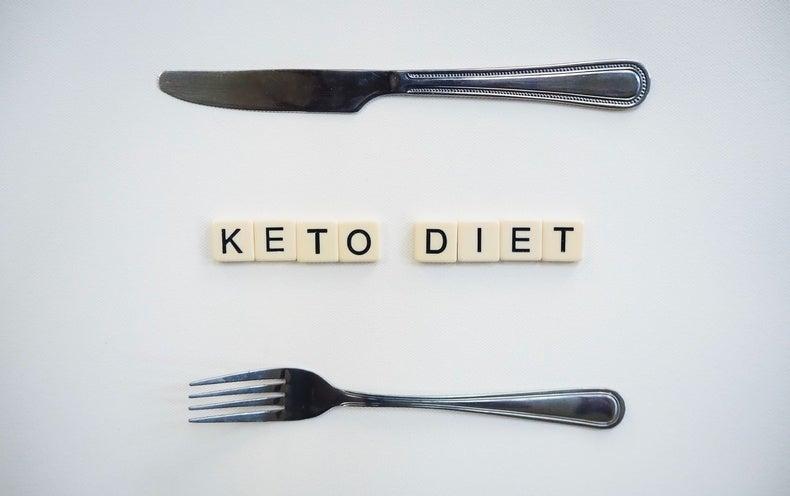The keto diet may treat brain cancer
More than 100 years ago, scientists tried to use diets to treat many diseases. Among these diseases are nerve infections, brain and intestinal diseases, and even diabetes and blood pressure. Over the years, some scientific theories have proven that following diets improves the condition of patients and protects them from the development of diseases, especially diabetes and cardiovascular diseases. However, can diets help? Diet in the treatment of cancer? The answer is yes. A small study found that the keto diet is safe and feasible for people with brain tumors called astrocytomas. astrocytomas; These are cancers that form in the brain in cells called astrocytes that support neurons. the keto or ketogenic diet; It is a high-fat, moderate-protein, low-carbohydrate diet that was used years ago to control epileptic seizures in children.
Small charger delivers fast charging for iPhone and iPad Vision March 5, 2022 A new artificial intelligence technology to predict the outcome of hepatitis B virus treatment March 1, 2022 There has long been interest in specifically targeting metabolic pathways involved in cancer and gliomas.With few therapeutic options that can be used to improve cases of For patients, the researchers say, the safe use of ketogenic nutritional interventions for more than a century in neuroscience and clinical medicine has encouraged them to explore and implement this type of nutritional intervention for neurological attacks or cancer. Carissa Shrek, assistant professor of neurology and brain surgery at Johns Hopkins University School of Medicine and co-author of the study, told Vision that she felt obligated to study this intervention more closely, so we could understand if it was safe, and when it might be combined. Better in current treatment regimens, and whether it is effective for glioma patients.” The study, which was conducted on patients who completed radiotherapy and chemotherapy, says that keto leads to changes in metabolism in the body and brain. Although the study was not designed to determine whether the diet could slow tumor growth or improve survival, However, scientists have found that changes in diet can prevent cancer recurrence and can also improve patients' quality of life after completing standard treatments. Partner adds that they used a combination of the keto diet and intermittent fasting to modulate the metabolic processes in the brains of patients with astrocytoma. . Noting in exclusive statements to "Al-Roya" that the team found that the diet was safe, and that more than 80% of patients reached the ketogenic state, which indicates this shift in metabolism in the body.The researchers also confirmed the presence of changes in metabolites in the brain . After using a specialized imaging technique called magnetic resonance spectroscopy, the researchers found that metabolites in the brain that may help fight astrocytomas became highly active, which could prevent them from recurring. There are not many effective treatments for these types of tumors. The brain, and survival rates are low, so any new developments to help get rid of these tumors are very welcome.. But what does the keto diet have to do with tumor treatment? Cancer cells depend on glucose to divide and grow. Because the keto diet is low in sugar, the body changes what it relies on to produce energy. Instead of carbohydrates, the body uses chemicals secreted by the liver in the human body as an alternative source of energy production called ketones. Normal brain cells can live on ketones, but - in theory - cancer cells cannot use ketones for energy. The study included 25 people suffering from astrocytomas. According to Shrek, in her statements to “Al-Vision” there was a lot of interest in ketogenic diets in the treatment of cancer, but the greatest interest was in brain tumors, although previous studies were not promising in other types. Of cancer, it is thought that brain tumor cells and brain cells are most susceptible to this type of treatment, as they may rely more on carbohydrates or sugar. Study participants followed a type of keto diet called the modified Atkins diet with intermittent fasting, for 8 weeks. This includes foods such as bacon, eggs, heavy cream, butter, leafy green vegetables and fish. Participants met a dietitian at the start of the study and then every two weeks. For 5 days a week, the participants followed the modified Atkins diet, which combines limited carbohydrates and high amounts of fat, fasted two days a week, and consumed up to 20% of calories. Recommended daily intake. The main objective of the study was to see if people were able to follow the diet without any serious side effects. A total of 21 people completed the study, and 48 percent followed the diet completely, according to their food records. But urine tests showed that 80% of people reached a level where the body was using fat and protein as fuel instead of carbohydrates. The diet was well tolerated. Two people experienced serious side effects during the study - one that was not related to diet and one that might have been. By the end of the study, changes in the body's metabolism and brain were seen. Hemoglobin levels, insulin levels and body fat mass decreased, and body mass increased. But of course, it was not without a number of side effects, says Partner. “We found that the diet was well tolerated, but the most common side effect was changes in White blood cells and nausea. Shrek notes that some patients have lost a lot of weight, especially in fat mass, and increased muscle mass. Specialized brain scans have also shown increased concentrations of ketones and metabolic changes in the tumor. More studies are needed to determine if this diet can prevent the growth of brain tumors and help people live longer. However, these results show that the diet can be safe for people with brain tumors and succeed in bringing about changes in the body's metabolism.










